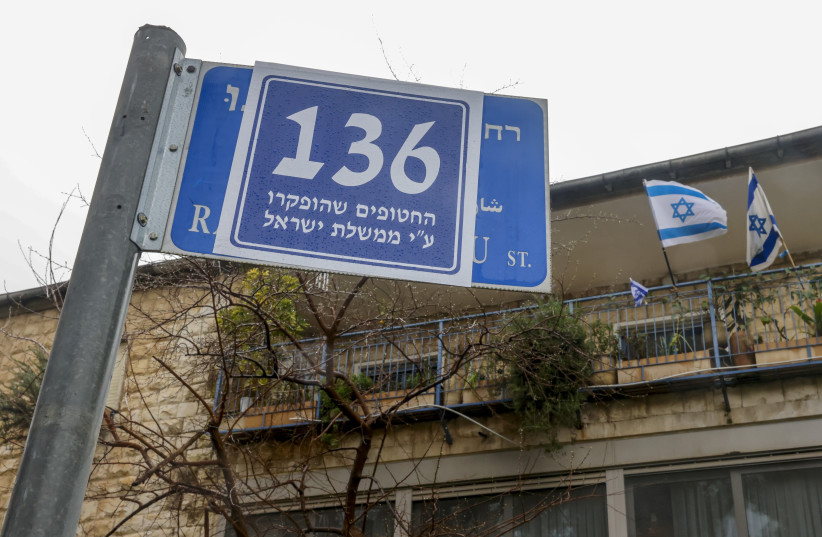US officials estimated that most of the Israeli hostages held by terror groups in the Gaza Strip are no longer alive, the Wall Street Journal reported on Thursday.
The number of living and dead among the Israeli hostages in Gaza varies from report to report. However, WSJ said that of the 134 hostages still in Hamas captivity, the Israeli government has publicly confirmed that 34 were murdered in Hamas captivity or earlier during the October 7 attacks.
US and Israeli officials believe that Hamas leadership, including Hamas terror chief Yahya Sinwar, have surrounded themselves with the Israeli hostages deep in the tunnels of Gaza, reportedly in the Rafah area.
Meanwhile, CNN reported Wednesday that Hamas told the mediators in the framework of hostage negotiations that it was unable to identify and locate 40 live hostages in order to carry out the first phase of the deal, according to an Israeli source, as well as another source privy to the details.
WSJ reported that according to a Hamas official, the group could not commit to releasing 40 live hostages but could commit to the release of 40 hostages - dead or alive.
This followed the report that the terrorist organization rejected the US plan for a temporary ceasefire in Gaza.

The rejection illustrates the broad disagreement between the two sides on the outlines of an agreement and reflects Hamas's growing confidence that the diplomatic and internal pressure on Israel to end the war gives the group, which we designate countless states as a terrorist organization, an advantage in the negotiations.
Israel has not confirmed the WSJ reports that Hamas has few live hostages to return. Israel has not yet received an official update from the mediators about the ongoing hostage negotiations.
Difficulty in meeting Hamas's growing demands
Hamas is asking for a permanent ceasefire and a complete withdrawal of the IDF from Gaza in exchange for the release of hostages held in the Strip. Israel has expressed openness to negotiations on the US proposal for a temporary truce but wants the possibility of continuing military operations afterward.
The US plan, presented by the director of the Central Intelligence Agency (CIA) William Burns, to senior officials from Israel, Hamas, Qatar, and Egypt in Cairo, calls for a six-week ceasefire in Gaza. During the ceasefire, Hamas would release groups of 40 hostages in exchange for 900 Palestinian prisoners from Israel's prisons, including 100 serving prison terms for terror-related offenses, the plan said. Many of the 133 hostages held in Gaza are presumed dead.
Israel's war cabinet met on Tuesday evening to discuss the US proposal before discussing it with the other ministers. A senior Israeli official close to the negotiations said on Wednesday morning that Israel is open to using the US proposal as a basis for talks. Still, the plan is seen as favorable to Hamas. Senior Israeli officials see the proposed plan for the return of Palestinian citizens to northern Gaza and the exchanges of prisoners and hostages as significant concessions.
However, the official said that a majority of the government would vote in favor of ratifying an agreement, even if there were difficult concessions on Israel's part. If Hamas provides a counterproposal that will advance the negotiations, the two sides will be able to enter into serious negotiations, the official said. Their proposal is based on a previous proposal, as the negotiations have started and stalled numerous times.
According to this plan, Hamas said it would release hostages who are women, children, and the elderly in exchange for the release of Palestinians in Israeli prisons, the withdrawal of Israeli soldiers from parts of Gaza, an increase in the flow of aid and freedom of movement for Palestinians throughout the Strip. In the second phase of this deal, Hamas would release additional hostages in exchange for a full Israeli withdrawal from Gaza.
Israel has said it is open to negotiations on these points but seeks to avoid freedom of movement for Gazans before a permanent end to the fighting to prevent Hamas from regrouping in areas where Israel has already defeated the terror group.
